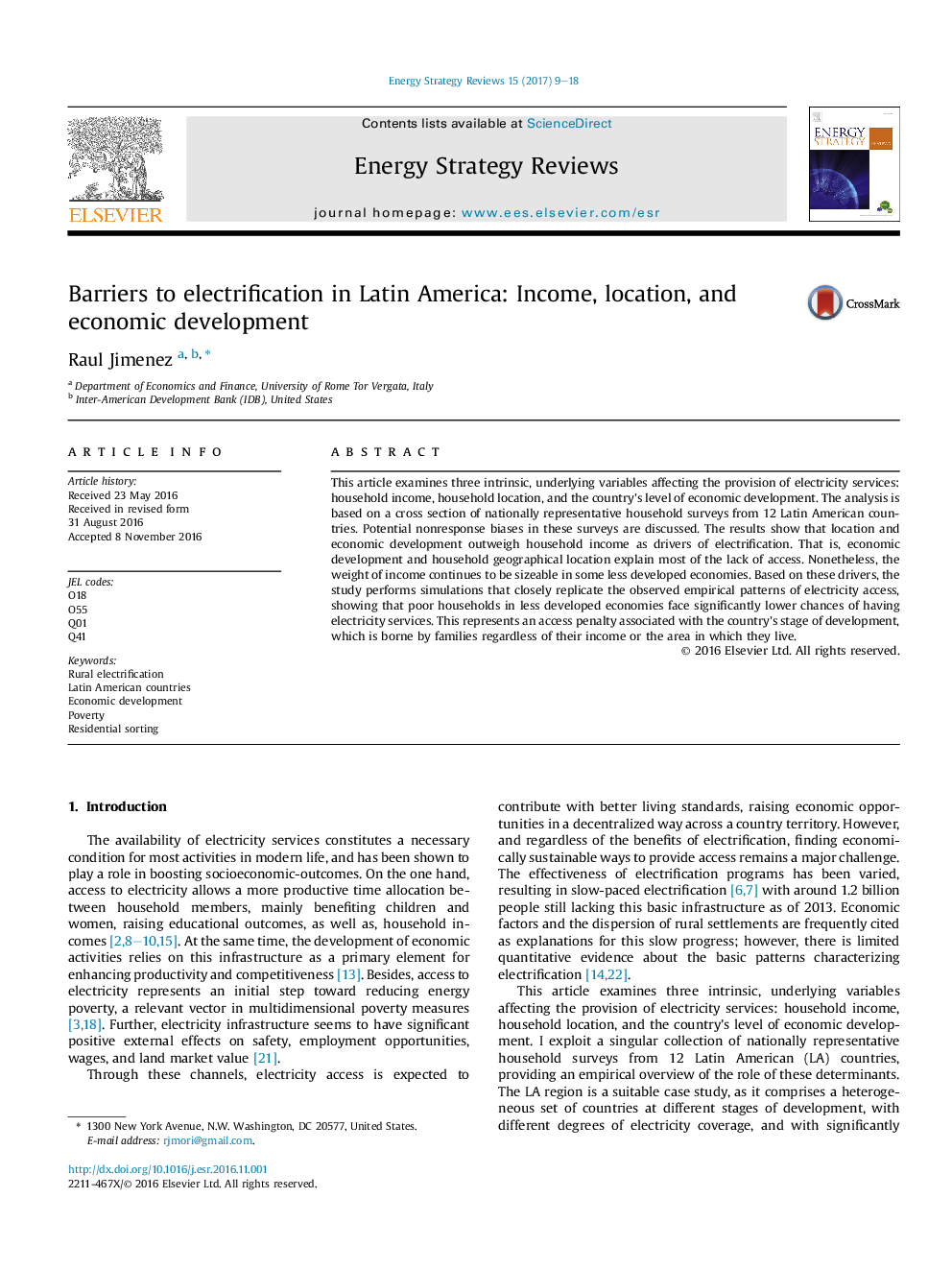| Article ID | Journal | Published Year | Pages | File Type |
|---|---|---|---|---|
| 5111439 | Energy Strategy Reviews | 2017 | 10 Pages |
Abstract
This article examines three intrinsic, underlying variables affecting the provision of electricity services: household income, household location, and the country's level of economic development. The analysis is based on a cross section of nationally representative household surveys from 12 Latin American countries. Potential nonresponse biases in these surveys are discussed. The results show that location and economic development outweigh household income as drivers of electrification. That is, economic development and household geographical location explain most of the lack of access. Nonetheless, the weight of income continues to be sizeable in some less developed economies. Based on these drivers, the study performs simulations that closely replicate the observed empirical patterns of electricity access, showing that poor households in less developed economies face significantly lower chances of having electricity services. This represents an access penalty associated with the country's stage of development, which is borne by families regardless of their income or the area in which they live.
Keywords
Related Topics
Physical Sciences and Engineering
Energy
Energy (General)
Authors
Raul Jimenez,
